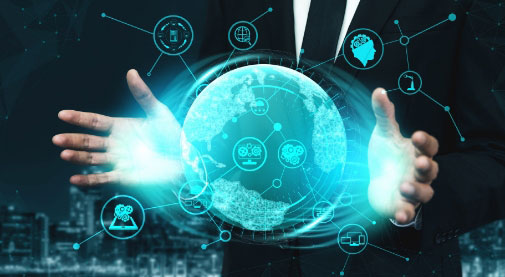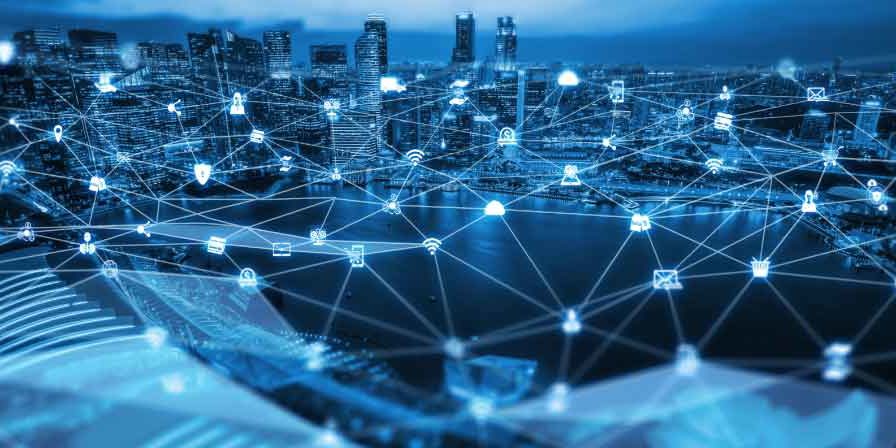What is the Internet of Things?
The term Internet of Things refers to the networking of things via secured wireless technology. The IoT devices can control their encompassing atmosphere and share information with other systems for further processing.
As per Wikipedia, “The Internet of things (IoT) is the system of devices, channels, and home devices that include electronics, software, actuators, and connectivity which enables these objects to connect, communicate and transfer data.” just consider it as a network of internet-connected appliances and devices gathering and sharing data via internet technologies.
Let’s see how the Internet of Things is changing the pace and face of many industries.
Electronics Consumers
Numerous innovative and smart IoT electric devices powered consumer electronics products disrupt the market; these IoT-connected devices can communicate to customers and other machines. Such interruptions will be using the consumer electronics industry to new heights.
These smart, energy-saving, smart electronic devices in IoT have functionality like sensing, actuation, and control. They are always connected to the manufacturer’s system through the internet and can transmit information about product reviews, usage trends, and energy expenditure.
Using Artificial Intelligence and Machine Learning to make them smarter, business engineers can use such data coming from the entire network. IoT provides board range of benefits in electronics consumers, such as:
- Preventive Maintenance
- Improve Customer Experience
- Predicate Product Malfunction
The role of IoT in Consumer Electronics is nothing less than a game-changer. Companies that started spending in this unexplored territory will get the benefits of IoT.
Automotive
IoT can assist in a usable form to impose speed limits, stop drunk driving, protect children and walkers on the road, and avoid collisions of traffic, road rage, and collisions due to driver mistakes by facilitating the launch of independent self-governing, connected vehicles. These connected vehicles will give remote monitoring and control, traffic data on a real-time basis, effective safety systems, and 24×7 connectivity within the vehicle. Traffic congestion can also be restricted in peak hours with autoroute diversions. Moreover, IoT will produce customized insurance rates and a reliable, driverless practice in the long-term.
Healthcare
Well, the way IoT is powering connected healthcare, it’s not shocking to think that physical hospitals will be phased out by 2025 and replaced by a virtual and remote healthcare system.According to industry reports, healthcare will be one of the essential industries in which IoT is transforming. There are several IoT-enabled medical types of devices connected to the secured network.
These medical devices share visions and patient reports and real-time location tracking, and many other features make these tools very convenient for the patients.
IoT is specific and is looking for opportunities to harness technology and enhance productivity. With the developing requirement for IoT in healthcare, the hospitals will be more connected and improved within a few years.
Agritech

With the arrival of Industrial IoT in Agriculture, considerably more advanced sensors are being employed. Now the sensors are connected to the cloud through a satellite/cellular network, which allows us to know the real-time data from the sensors, making them powerful.
IoT applications like Smart Soil Sensor for Farm & Garden in the agriculture industry have helped farmers and growers to monitor farm, garden, and field-related soil data through a paired Mobile and Web App. This allows farmers to know what is most suitable for their yields without manually measuring or making a trained view. With more reliable data being supplied to them live from their products, growers can make good planting, watering, and pest control choices.
The Internet of Things in Agriculture has come up as the second outbreak of a green revolution. The advantages that the farmers are making by changing IoT are twofold. It has helped farmers decrease their costs and increase yields together by growing farmers’ decision-making with accurate data.
Home automation
Making your own home better than others is the desire of every ordinary person. Just think IoT is making your home a smart home.
The smart home involves various IoT solutions like Kitchen care solutions, Smart Home Plug, Smart Plug Solutions, WiFi & Bluetooth Home Controller, which make your home a smart home when blended in a single space.
There are many benefits of Smart Home IoT Devices; some of them are:-
- Decreased electricity costs.
- Energy Saving.
- A smart lock makes your home more protected.
There are many other benefits of IoT in Smart homes. In the Future, the way one sees his/her home will change.
IoT and Wearables
In today’s tech era, wearables are one of the most trending technologies. Already globals brands like Samsung and Apple are diving into the competition for wearables. IoT is a large domain that includes many components such as fitness, health, sports, and many other verticals.
The sensors used in wearables are small but are very effective. They can measure different human body parameters like Pulse rate, heart rate, and more. Thanks to IoT enabled in wearables.
Final Note
IoT technology has demonstrated that we will exist in a smart world –smart homes (Home Automation), smart cities, smart parking, and smart street lights. It is intended to make our lives more comfortable. We develop in-house applications that cater to the IoT solutions and are customizable to various industries, including Home Automation, Hospitality, Automotive, and many others. IoT is at the next level of automating everything in our everyday life.



